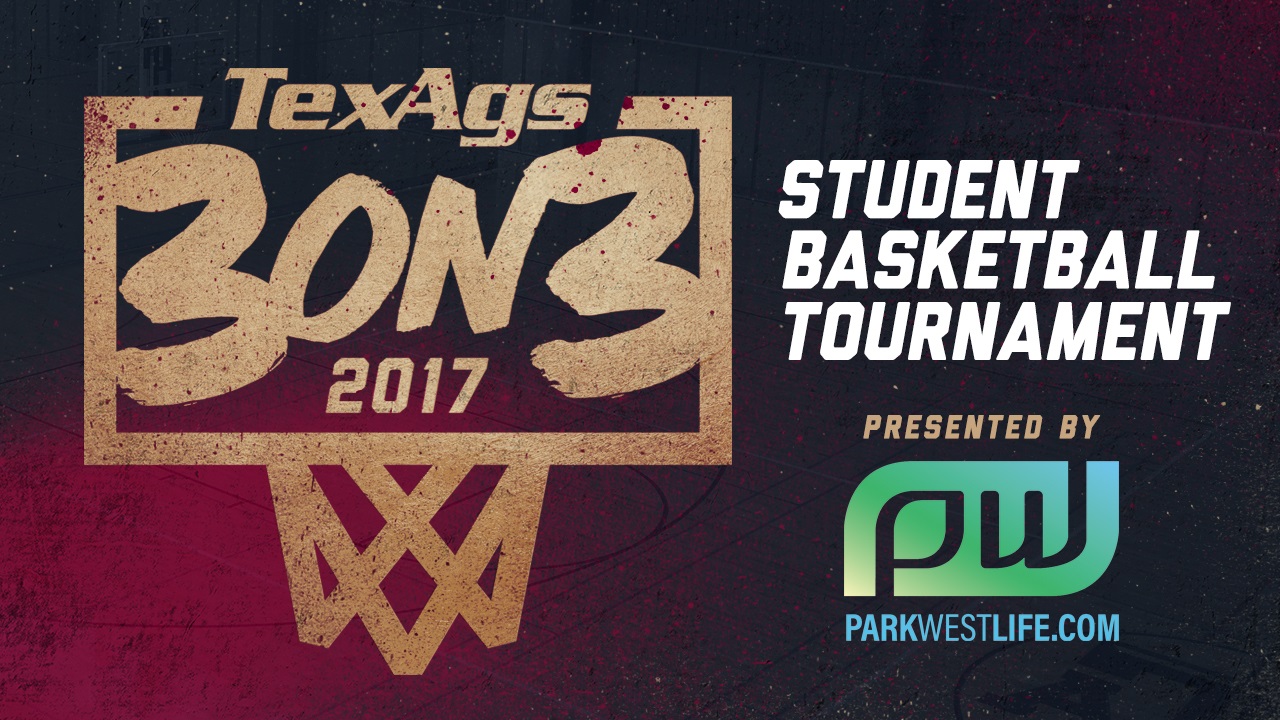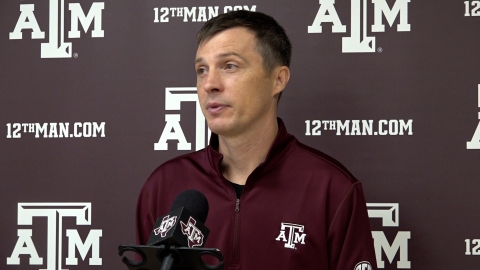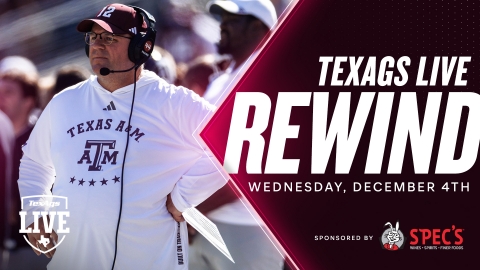
1. Eligibility
a. The tournament is open to current Texas A&M Students with a valid Texas A&M Student ID, per REC Center rules and regulations.
Warning: Event organizers are not responsible for determining a particular athlete’s eligibility under National Collegiate Athletic Association or applicable high school association rules.
2. Team Size
a. Each team is allowed up to 4 registered players and must have a minimum of 3. For Co-ed teams, a member of the opposite sex must be on the court at all times. All games must start with at least 3 players on each team, but any number of players (1, 2 or 3) may finish a game.
3. Equipment and Apparel
a. Tournament officials retain the right to disallow any equipment or apparel that is judged to be dangerous or inappropriate.
4. Bracket Types
a. The tournament will consist of the following Divisions:
- Men's Division
- Co-ed Division
5. Basket Height
a. The basket height will be 10 feet for both brackets.
6. Basketball Size
a. A full-sized ball will be used in both brackets.
7. Fouls and Officials
a. The officials will be paid Texas A&M REC Sports Officials.
b. The officials will call fouls for all games. All called fouls shall result in at least one free throw shot, except on a successful field goal, in which case the basket counts and no free throw shot is awarded, and except for Intentional, Flagrant or Technical fouls, which result in an automatic one point award.
- If the player is fouled in the act of taking a two point shot, the fouled player will be awarded two free throw shots.
- A basket shall not count when an offensive foul occurs.
- A change of possession will occur in the event of an offensive foul.
- A change of possession will result regardless of whether the free throw shot is made or missed.
- If a player is fouled in the act of shooting and makes the shot, the shot will count and the player will be granted an additional shot.
- An intentional foul is a foul designed to neutralize an opponent’s obvious advantageous position. It is a foul which, based on the basketball official’s observation of the act, is not a legitimate attempt to directly play the ball. A foul shall also be ruled intentional, based on the official’s observation of the act, if while attempting to play the ball, a player causes excessive contact. An intentional foul results in one point for the offended team and possession of the ball.
- A technical foul will be called for unsportsmanlike acts such as taunting, baiting or trash talk. Taunting and baiting can involve derogatory remarks or gestures that incite or insult a player. Trash talk involves a deeply personal, verbal attack directed toward any person involved in the event. In extreme cases, the player may also be suspended from play and a fan shall be removed from the arena. A player who aggressively comes into contact with or assaults a basketball official, tournament official, or fan shall be automatically ejected from the game and for the remainder of the current tournament.
- A flagrant foul may be of a violent or aggressive nature, or an act which displays unacceptable conduct. It may or may not be intentional. It may involve violent or aggressive contact such as striking, kicking, kneeing, moving under an opponent who is in the air, and crouching or hipping in a manner which could cause severe injury to the opponent. It may also involve dead ball contact or dialogue which is extreme or persistent, aggressive or abusive. A flagrant foul results in one point for the offended team and possession of the ball. The player committing the foul will be suspended from play for the remainder of that game and possibly for the rest of the tournament.
- If a player receives 5 fouls that player will be disqualified for the remainder of the game.
- A player who fouls out will not be disqualified for the next game.
- A player who receives 2 technical or 2 flagrant fouls will be disqualified for the remainder of the game.
- A player who is disqualified for technical or flagrant fouls in 2 separate games will be disqualified for the remainder of the current tournament.
8. Which team receives the ball first?
a. Teams will shoot for first possession.
9. Scoring
a. Baskets made from inside the three-point line count for one point. Baskets made from outside the three-point line count for two points. The first team to 21 points within the 20-minute time limit is the winner. There is no winning score beyond 21 points, and there is no win by two rule.
10. Length of play
a. The first team to reach 21 points within 20 minutes of play is declared the winner. The team that reaches 21 points does not need to have a winning margin of 2 points or greater. The 20-minute clock is stopped during team timeouts and if the official stops play for a player injury or other unusual circumstance. In all situations, the official shall declare a technical foul if it is determined that a team is intentionally stalling to run out the clock. If neither team has reached a score of 21 points, the court monitor shall stop the game after 20 minutes of play. At this point, if a team has a lead of 2 or more points, that team is the winner. If neither team has at least a 2 point advantage, the overtime rule must be activated. In overtime, the first team to score a total of 2 points more than the leading team’s score at the beginning of the overtime session, or reach 21 points, is the winner.
Examples: SCORES AT BEGINNING OF THE OVERTIME SESSION
- Score of 19 to 18: The first team to 21 wins.
- Score of 16 to 16: The first team to 18 wins.
- Score of 8 to 7: The first team to 10 wins.
- Score of 14 to 12: No overtime is needed since the leading team has at least a 2-point lead.
b. The 20 minute game clock will start at the scheduled game time regardless of whether or not the teams are ready (see rule 21)
11. Change of possession
a. The ball must change possession after scored baskets and after all made free throw attempts with the exception of a Technical, Intentional or Flagrant foul. There is no “make it, take it” rule.
- An offensive team may rebound the ball on a missed free throw attempt.
12. Checked ball
a. The ball must be “checked” by an opposing player before it is put into play. The check-in must occur behind the take-back line and not the out-of-bounds or end line. The ball must be passed to begin play. The pass may occur anywhere on the court, but the on-ball defender must remain behind the three-point line.
13. Taking it back
a. The ball will be “taken back” on each change of possession, regardless of whether or not a shot was attempted. Failure to “take it back” results in loss of possession and any points just scored. When taking the ball back, the player must bring his/her whole body and the ball behind the “take back” line, and not the sidelines or three point line.
14. Out of bounds
a. A ball out-of-bounds will be taken out from the back court line.
15. Boundaries
a. The basket structure, padding and structural supports will be played as out-of-bounds. The actual backboard, including its face, top, bottom and sides shall be considered in-bounds.
16. Jump ball
a. In a jump ball situation, the ball will first go to the team which lost the opening coin toss, with alternating possessions thereafter.
17. Subs
a. Substitutions may only be made during a timeout or a “dead ball” situation.
18. Timeouts
a. Each team is allowed a single one minute timeout per game. The clock will stop during a timeout.
19. Injuries
a. An official has the discretion to suspend play for the protection of an injured player. If a player is bleeding or has an open wound, that player will be directed to leave the game and properly bandage the wound. A player with any bloodstained clothing or bandage must remove the stained or saturated material prior to reentering the game. If it is believed that a player has lost consciousness during a game, or is severely injured, event organizers may require a written note from a medical doctor who has examined the player subsequent to the game injury and specifically authorizes that player to continue participation in the tournament.
20. Use of illegal players
a. The players listed on the roster submitted in the team registration process, accepted by event organizers, are the only players eligible for play on that team. Player changes submitted on an authorized Player Change Form, and accepted by the event organizers, must be completed and approved by 8:00am on the day of the tournament. Under no circumstances will roster substitutions be allowed after the tournament begins. If a team uses a player not properly registered, that team will be disqualified from the tournament.
21. Failure to arrive on time
a. Each team will be granted a 5 minute grace period after the scheduled start of the game.
b. For each minute a team is late, the opponent will be awarded one point.
c. If the team does not arrive within that 5 minutes, tournament officials have the right to disqualify that team.
Event organizers and designated tournament officials shall have the power to make all decisions on any points not specifically covered in the Rules & Regulations and shall have the sole authority to interpret the intent and purpose of these Rules & Regulations. Event organizers and designated tournament officials reserve the right to disqualify any player and/or team for infractions of tournament rules and policies.
For questions, contact cat@texags.com.
Never miss the latest news from TexAgs!
Join our free email list



